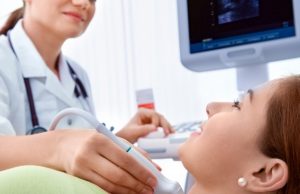
See, at the end of April 2013, I was diagnosed with thyroid cancer. One of the more rare forms of cancer to develop, especially at the age of 26 years old, I was more than taken aback by the sudden revelation. Having said that, with a mother who passed away at the age of 39 years old as well as a long family history of cancer, it was news that I was prepared to receive and accepted the challenge head on.
Let’s rewind back two years to see when this all began.
Toting a bill of exceptional health and vigor for most of my life, I took notice when a small lump began to form at the center region of my throat. Given the circumstance with my mother having been diagnosed in the latter stage of the brain tumour that ended her life, I had innately developed a cynicism for doctors and lack of trusting when it came to my personal diagnosis.
I took it upon myself to conduct research independently through our valued friend, the internet. That was my first mistake. The plethora of content that poured from the pages filled my mind with worse case scenarios and perilous warnings which were not conducive for my mind frame at the time.
Despite my initial reaction and disdain for doctors, I decided it best to let professionals have a look at the protruding goiter and judge for themselves. After a round of tests and ultrasounds, they determined that it was a small, inconspicuous nodule that caused for little concern. Cysts are common, and most often than not, completely harmless. In fact, there was less than a 5% chance that it was malignant.

I was scheduled for a fine needle aspiration (FNA) wherein they insert a large, thin needle into the cyst to drain the fluid and take a biopsy to be sent for analysis. The first FNA was relatively pain-free and the cyst deflated substantially. Thrilled, I began to place more trust and appreciation into the hands of my doctors.
There was good news and bad news. The good news that was there were no cells in the biopsy that were suspicious, but the bad news was that within a few days, it had filled back up with fluid.
Six months passed and I went in for another review. At this point, it had grown more visible to the naked eye and another FNA and ultrasound were recommended. They found an increased amount of hard nodules contained within the same region, and the FNA did not work again to drain all the fluid. Still, the results came back A-OK.
As an avid fitness enthusiast and general adventurer by nature, I continued to enjoy my life and lived as though it were a mere blip on the radar. It was not until I return to my hometown and went for a third biopsy, this time of the hard nodules, when I was given the news. Going in for what now seemed like a regular visit with the ENT (ears, nose, throat doctor), the appointment quickly shifted gears.
“We have the results back from the biopsy,” the Doctor began, “and they found some suspicious cells.”
Unsure of what that meant exactly, I retorted: “Ok, what does that mean?”
“You have cancer.” He stated concisely.
From that moment on, I tuned out the remainder of the conversation. Snippets of details concerning next steps and referrals were retained, but the bulk of the information went from one ear out the next. I thanked him and was told to expect a call for the meeting with the oncologist.
I remember leaving the office calmly and stoic. Not feeling any real emotion, negative or positive, but more of a heavy, sinking feeling in the pit of my stomach. Not knowing how to break the news, I took out my phone and texted three simple words to my boyfriend: “I have cancer.” In retrospect, that is not the appropriate way to tell someone news of that magnitude but I was not in a position of rational thinking.
Since finding out, I have maintained a generally positive attitude. Everyone has their days of weakness where they start to think of the negative repercussions that may ensue, but that’s normal. I have a very strong support system which helps to lift me when I am down and reignites my optimistic verve.
The next step which is imminent is a full thyroidectomy. Essentially, the thyroid must be removed in its entirety to be able to stage the cancer and see if any further treatment will be needed. If so, radioactive iodine will be used to attack the remaining thyroid cells and kill off any existing cancer cells that remain in my body. I will need to commence a thyroid hormone replacement treatment immediately post-surgery and continue for the remainder of my life.
It is a small price to pay, in my eyes, to not have cancer.
As I countdown the days until surgery, I am left with a sense of gratitude. My cynicism has subsided and the doctors have been more than accommodating given my situation. I am confident that I will be in good hands and recover swiftly to live on the remainder of my life as passionately as I had before. I plan on dying an old woman, peacefully tucked away in her warm bed!